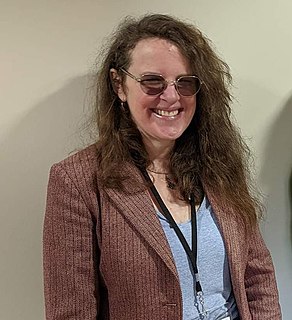A Quote by Dave Gibbons
I don't think schooling of any sort really prepares you for real life. I don't know if art school would have prepared me to draw comics. Half of the people I know in comics went to art school, half of them didn't. Some of them went and dropped out.
Related Quotes
I don't really have any great interest in writing for movies. Comics, to me, is a much more promising field. There's still a lot of ground to be broken in comics, whereas movies, to a degree... I don't know. They're a wonderful art form, but they're not my favorite art form. They might not even be in the top five of my favorite art forms.
I started drawing comics, and at first I was very influenced by the whole pop art movement, you know, Batman was on TV and all that pop art stuff? But then my next influence was in 1966, or maybe it was '65, I don't know. Somebody showed me a copy of the "East Village Other", which was an underground newspaper. And... it had comics in it! And they weren't superhero comics.
I taught myself how to draw, and I soon found out it was what I really wanted to do. I didn't think I was going to create any great masterpieces like Rembrandt or Gauguin. I thought comics was a common form of art, and strictly American in my estimation, because America was the home of the common man - and show me the common man that can't do a comic. So comics is an American form of art that anyone can do with a pencil and paper.
If I lived where I live right now, and my kids were in middle school, they would be the only white kids in the school. That is not a burden I wanted to place on them. My preference would have been a school that was totally diverse - half and half, or close. I wouldn't have hesitated at all if they would have been in the racial minority. But to be the only white kids: I don't think that would have been fair to them.
[Comics is] one of the last havens for honesty when it comes to a reader's genuine response to art. Most of us, if we don't find any sympathy or pleasure, for example, in a modern painting, are likely to blame our own ignorance of the history and theory of painting. But nobody pretends to like a bad comic strip. Such harshness is necessary for any real truth to surface, I think, and for art to really contribute anything to life. Though I don't know. I could be wrong.
I quit comics because I got completely sick of it. I was drawing comics all the time and didn't have the time or energy to do anything else. That got to me in the end. I never made enough money from comics to be able to take a break and do something else. Now I just can't stand comics. . . . I wish my work would be recognized by a larger crowd of people as more art than be stuck with the cartoonist label for the rest of my life.
Since I started as a comic person then became a musician to me it was interesting because I have this really great, interesting fanbase that's really smart and energetic and uh how could I steer them towards a medium that shaped who I was? You know, steer them toward comics. That was really the goal, to bring a lot of readers cuz they were reading a lot of comics but most of them hadn't been reading American comics, they'd be reading manga sitting on the floor of a Barnes and Noble.
If you want to be a chef or a scientist, you've got to know what the current thinking is, so if you want to write comics or draw comics find out what the very best ones are and look at them all and then you'll know where the bars are because the bars are often very high, if you are going to make a splash and make yourself known, you need to get to that level.






































